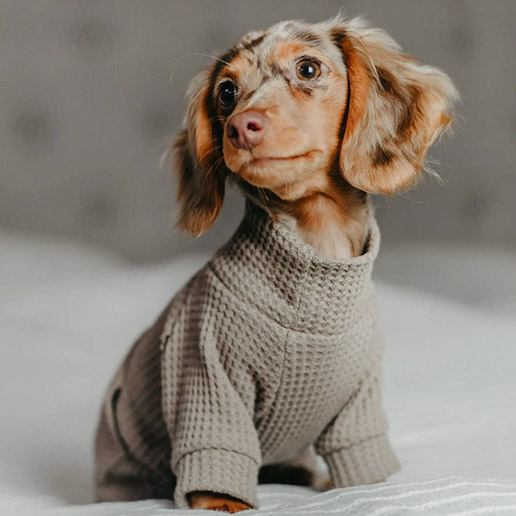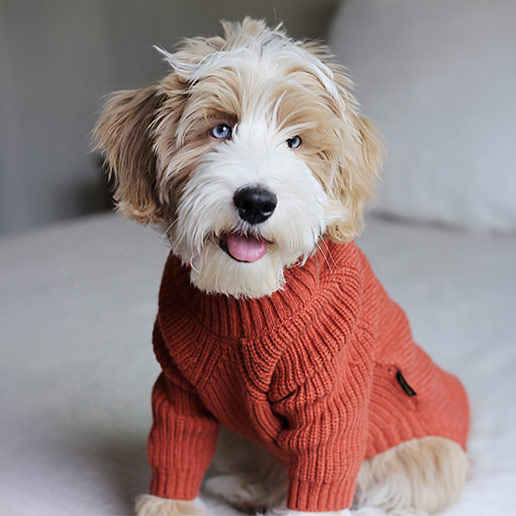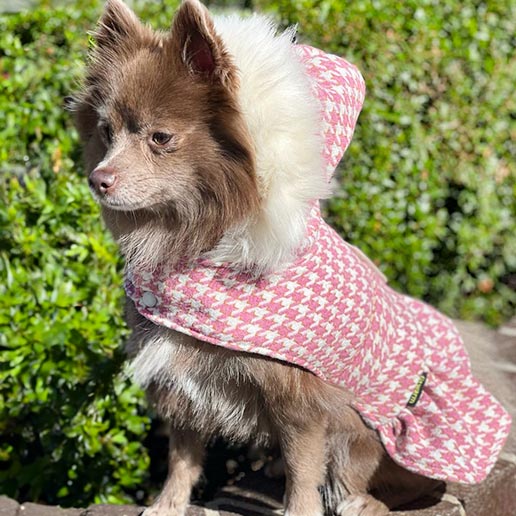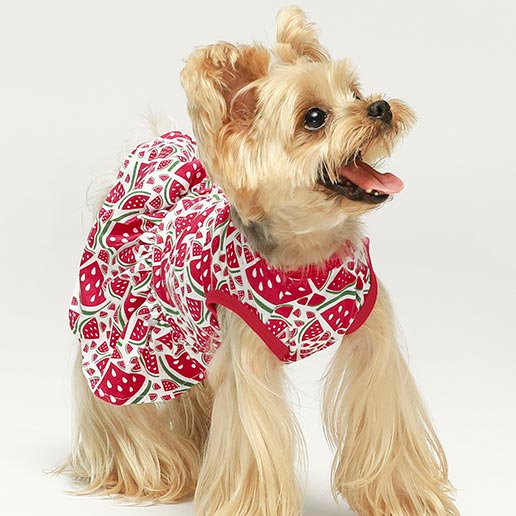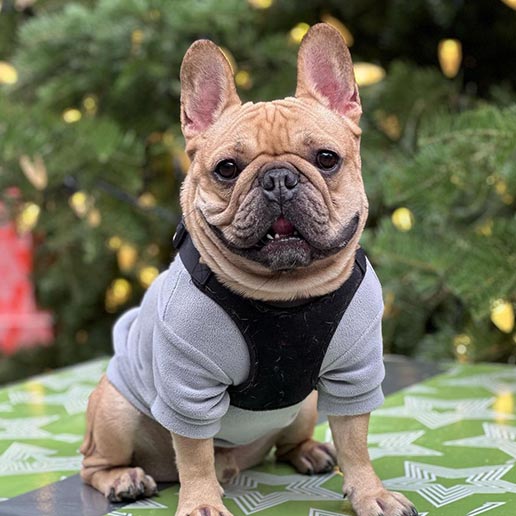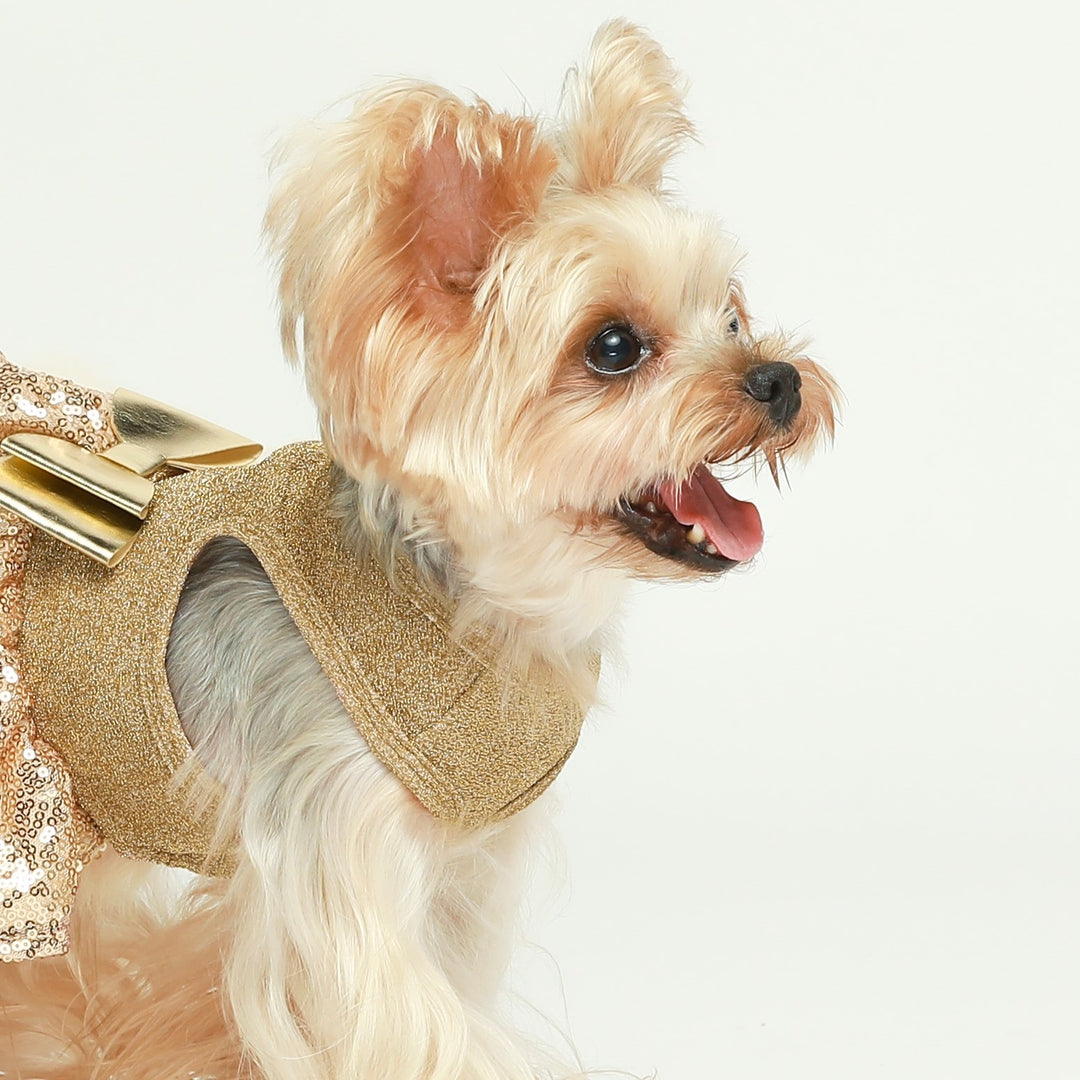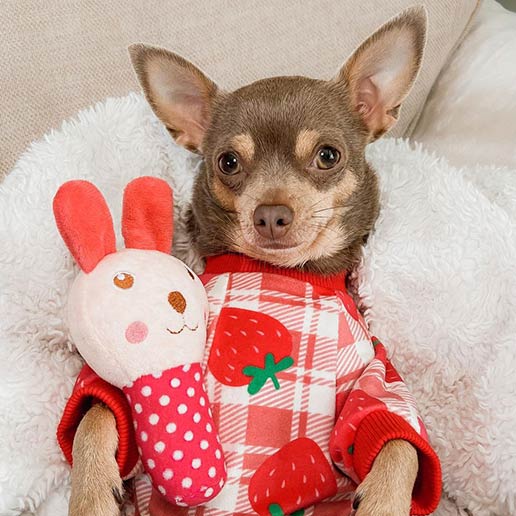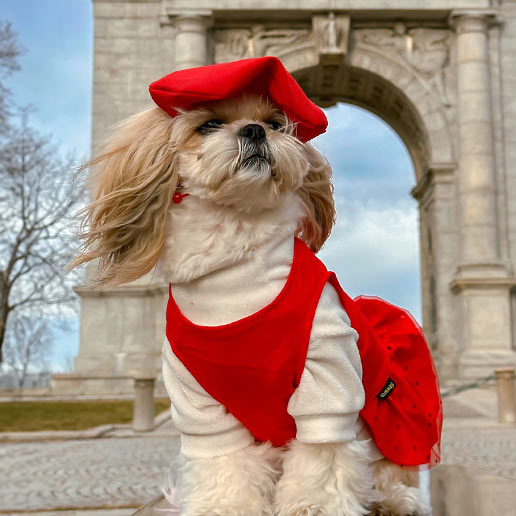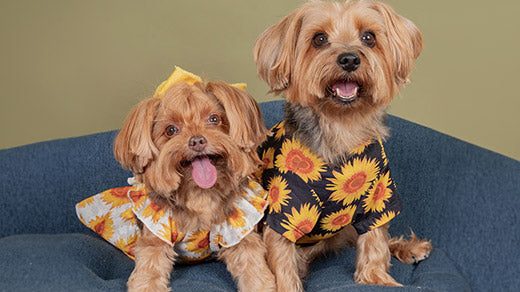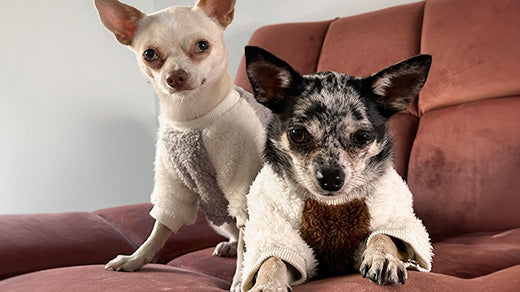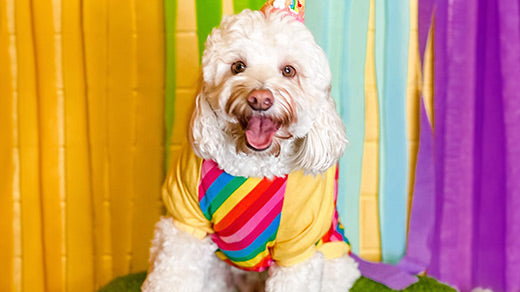Calming Techniques for Anxious Dogs: What Really Works?
Does your dog pace, pant, or tremble for no apparent reason? Anxiety is common in dogs and can significantly reduce their quality of life. The good news is there are many techniques you can try to ease your pup's stress. From changes to their environment and routine to specialized training and anti-anxiety products, various approaches can help dogs feel more relaxed. This article explores the root causes of canine anxiety and provides actionable tips to calm your anxious pet. You'll learn smart strategies to help comfort your dog and support their emotional well-being. With time and consistency, using evidence-based methods, your fretful Fido can learn to settle and gain confidence.
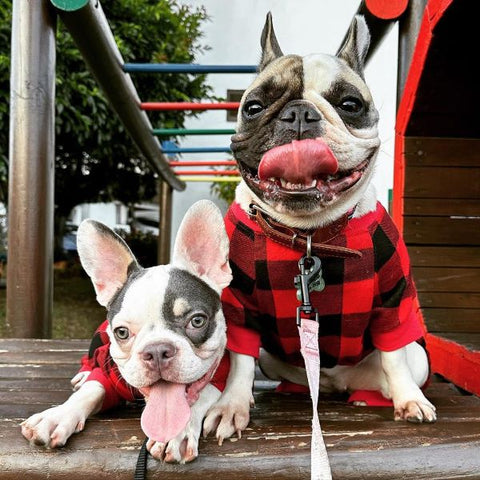
Instagram: doubletrouble_frenchies
Understanding Dog Anxiety: Common Triggers and Causes
Identifying the underlying factors is crucial in helping your furry friend overcome their fears. Here's what you need to know about the common causes of anxiety in dogs:- Genetic Predisposition: Like humans, some dog breeds are more susceptible to anxiety. This is often due to their genetic makeup, which might be a result of selective breeding.
- Personality Traits: Shy, timid, or naturally sensitive dogs can be more prone to feelings of anxiousness.
- Early Socialization: Puppies that don't receive adequate socialization may find it challenging to adapt to new situations or environments as they grow older.
- Traumatic Events: Experiences such as getting lost, staying in kennels, stressful veterinarian visits, or past abuse can have long-lasting effects on your dog's mental health.
- Life Changes: Shifts in routine, moving homes, or alterations in family dynamics can unsettle your pet.
- Health Issues: Sometimes, pain or discomfort from medical conditions can cause or exacerbate anxiety.
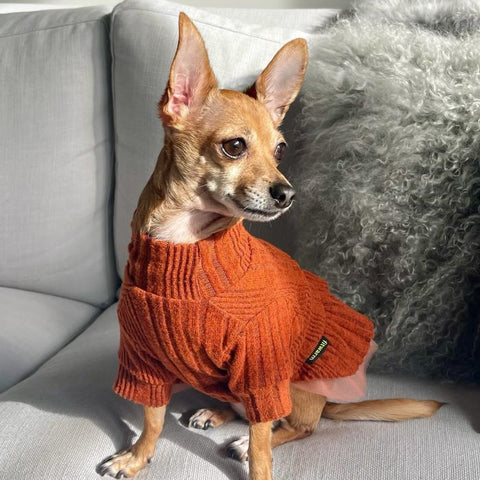
Instagram: dear_dolli
By pinpointing the root of your dog's nervous behavior, you can create a tailored plan to alleviate their stress. This might include:
- For genetic anxiety: Consulting with a vet for potential anti-anxiety medications or creating a specialized behavioral therapy program.
- For situational anxiety: Implementing desensitization techniques to help them become accustomed to specific triggers such as fireworks or loud noises.
Simple Training Tips to Help Calm Your Anxious Dog
If your dog gets nervous or scared, don't worry-certain training tips can help them feel better. Let's look at some easy ways you can teach your dog to be calmer:- Reward Good Behavior: Think of this like giving a child a gold star for good work. When your dog is calm during a time they'd usually be scared, give them a treat or extra cuddles. This shows them that being calm is a good thing.
- Change Scary Moments into Happy Ones: This might sound tricky, but it's like turning broccoli into chocolate! If your dog is afraid of something, try offering them their favorite snack when that scary thing is around (but not too close). So if they usually bark at other dogs, give them treats when they see another dog from far away.

Instagram: daffy_thedachshund
- Take Baby Steps: Imagine being afraid of water and then diving into the deep end-that would be terrifying, right? You'd want to start with just dipping your toes in first. It's the same with dogs. If they're scared of something, like loud noises, start by playing a recording of the noise very softly while they're enjoying a meal. Gradually, over time, play the sound a little louder as long as they stay relaxed when eating.
- Teach Them 'Relax' Commands: This is teaching your dog to chill out on cue. You can use a special word like 'settle' so that when they hear it, they know it's time to lie down and relax.
- Create a Go-To Safe Place: Give your dog their own cozy spot, like a mat or bed, where they can go when feeling stressed. Train them to go there when they're feeling overwhelmed.
- Build Their Confidence: Just like people, dogs feel less anxious when they're confident. Playing brain games, learning new tricks, and solving puzzles can make your dog smarter and braver.
How to Offer Comfort to Your Stressed Pup
Alleviating anxiety in dogs can be as simple as incorporating items from their everyday wardrobe. Here's how dog clothes can play a part in comforting your canine:- Dog Sweaters: A well-fitting sweater is like a cozy blanket your dog can wear. It keeps them warm on brisk walks and makes them feel like they're getting a gentle squeeze, which can be very comforting.
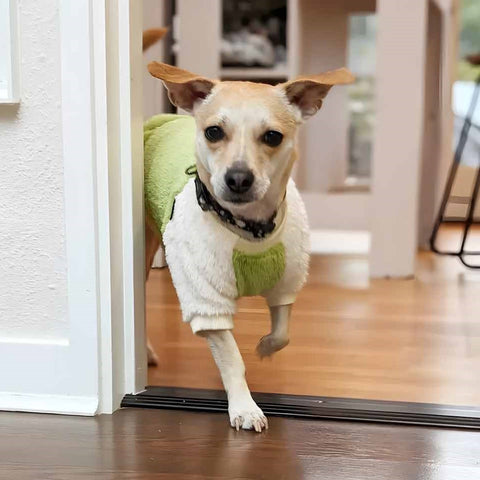
Instagram: dr_laura_doodles
- Dog Coats: A good dog coat helps keep your buddy warm and dry when it's raining or snowing outside, helping them to enjoy their walk without feeling uncomfortable
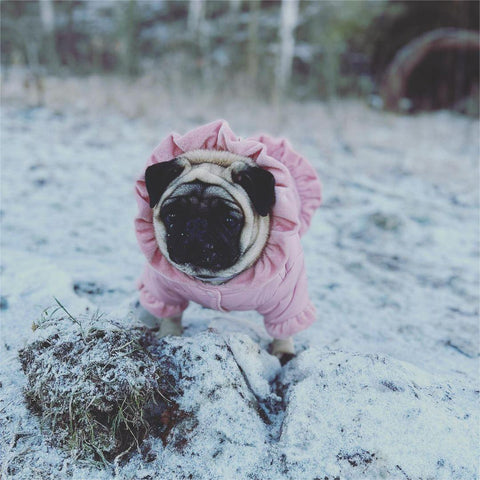
- Dog Pajamas: Soft pajamas can prevent your dog from scratching at night and help keep them warm. For dogs with allergies or sensitive skin, pajamas provide an extra barrier to irritants.
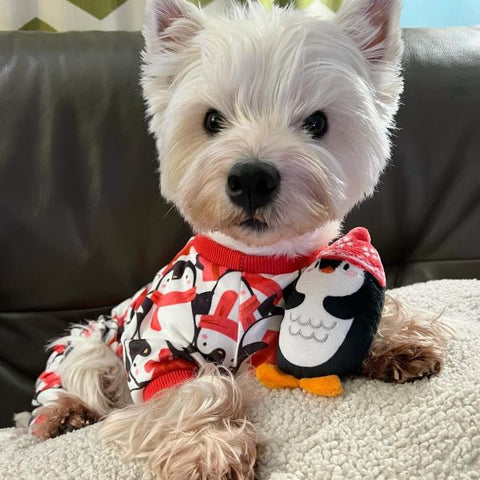
Just remember, each dog is unique, so what helps one might not help another. It's all about finding what your dog likes best. And before you start anything new, it's always a good idea to talk with your vet to make sure it's okay for your pup.
How to Tailor Your Dog's Daily Routine for Anxiety Relief
Helping your dog feel less anxious might also mean making some changes to their everyday habits. Here's what you can do to help them lead a more relaxed life:- Regular Exercise: Just like a good workout can clear your mind, regular physical activity is great for your dog's mental health. It helps burn off energy that might otherwise turn into nervous behavior.
- Brain Games: Imagine how fun a puzzle or treasure hunt is. For dogs, sniffing out treats in a puzzle toy or playing hide-and-seek with their food can make them happy and tire out their brain in a good way.
- Training Time: Keep teaching your dog new tricks but in bite-sized lessons. Short training sessions using lots of praise and treats make learning fun without stressing them out.

- Routine Rules: Dogs love knowing what's coming next. Feeding them, walking them, and playing at the same time every day gives them a reassuring schedule they can count on.
- Stress-Free Appointments: Things like vet visits or haircuts can be scary. Try to make these as easy as possible by going during quiet times or asking the staff to be extra patient with your sensitive pup.
Making these lifestyle tweaks takes some effort, but it's all about giving your dog a stable, predictable world that feels safe. This kind of steady support works really well alongside regular training to keep anxiety at bay.
Finding Calm: Easing Your Dog's Anxiety with Time and Patience
To help a worried dog become brave again and handle stress better, you need to spend time and keep using different ways to calm them down. Even though your dog might always be a bit nervous, you can teach them to not react as much to the things that scare them by using special training, planning, and changing their daily routine. This can make your dog feel safe and able to deal with scary things more easily, allowing them to chill out more often.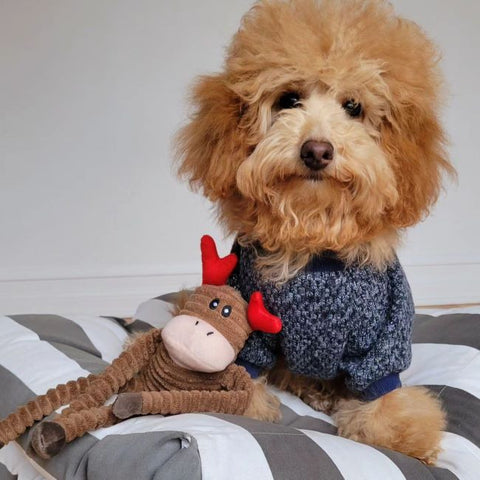
Read More
- Enjoy the Halloween Celebration with Your Pets.– Fitwarm
- From Tartan to Buffalo Check: How to Wear Plaid Clothing– Fitwarm
- Fashionable & Convenient Dog Halloween Costumes: Perfecting Your Pet's– Fitwarm
- Navigating Life with a Cute Corgi: A Beginner's Guide– Fitwarm
- From Everyday to Holiday Styles: Guides to Choose Perfect French Bulld– Fitwarm


